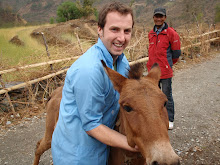Many believe women empowerment projects should just focus on the women of the community. And although VIVA Nepal concentrates most of it's efforts on the female farmers, it's impossible to achieve proper gender equality without recognition from the men in the family.
This kind of social experiment will not see overnight results and there are no hard and fast rules on how to carry it out. We must try and be inclusive of all community members and not create or deepen divisions. And what's the point of explaining women's rights when no men are there to listen and respect them?
This is why in our last training we invited the chairperson of each group and a male member of the community to participate. Planning Participatory Monitoring & Evaluation training explored all the components of group activity planning. From planning the activities, through efficient execution and effective monitoring. These skills will be very useful once each group begins to establish their own CO-OP and will encourage active participation from the men in the community in all the groups' activities.
Thursday, June 18, 2009
Wednesday, June 3, 2009
Fodder and Forage Cultivation Training
In 2007, VIVA implemented the Animal Health Management Program which, in essence, was a research project, evaluating the nutritional status of livestock in Nepal. One of the major findings was the huge deficit in green forage and fodder (grasses and legumes) during the dry season. This was holding back livestock from meeting their full potential of milk and meat production.
CLPSP has evolved from these observations and we have just completed Forage and Fodder Cultivation Training in all the groups. The participants learned about improved grasses and how they are grown. A practical demonstration was used, involving all the members working together to farm these grasses on unused plots of land.
And that's the key! Grasses grow with relative ease in the temperate dry season but shouldn't compete with food crops like wheat and maize. They grow on steep slopes and far away fields that would otherwise lay barren. Now the groups will optimize their land to the full and this will have a big impact on the animals dry matter and crude protein intake. The farmers will also reap the rewards in terms of higher milk and meat yields. All we have to do is wait for the grass to grow!
CLPSP has evolved from these observations and we have just completed Forage and Fodder Cultivation Training in all the groups. The participants learned about improved grasses and how they are grown. A practical demonstration was used, involving all the members working together to farm these grasses on unused plots of land.
And that's the key! Grasses grow with relative ease in the temperate dry season but shouldn't compete with food crops like wheat and maize. They grow on steep slopes and far away fields that would otherwise lay barren. Now the groups will optimize their land to the full and this will have a big impact on the animals dry matter and crude protein intake. The farmers will also reap the rewards in terms of higher milk and meat yields. All we have to do is wait for the grass to grow!
Subscribe to:
Posts (Atom)


